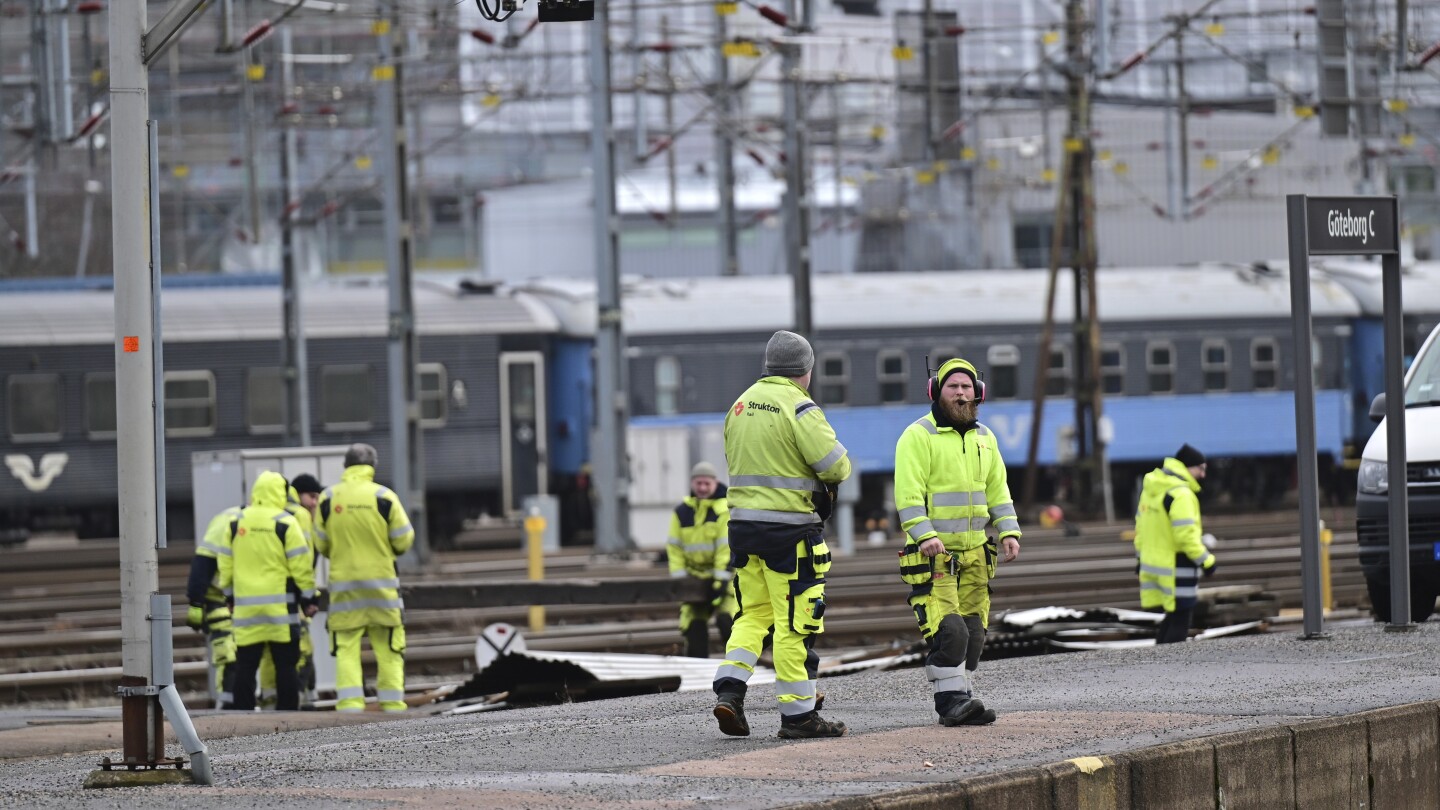COPENHAGEN, Denmark (AP) — A storm packing strong winds in Sweden tore a roof off of the main train station in Goteborg on Friday, knocking out power and temporarily halting rail traffic in and out of the country’s second largest city. There were no immediate reports of injuries.
The storm blustered along the coasts of southern Scandinavia overnight with the Swedish Meteorological and Hydrological Institute issuing its second highest warning Friday. Some 4,000 people were without power on Sweden’s west coast, the Swedish TT news agency said.
Photos from Goteborg, on Sweden’s western coast, showed part of a roof across the tracks at the central station, with local officials saying it was unclear when train traffic would resume. A bridge in the archipelago north of Goteborg was closed to traffic, the Swedish Aftonbladet newspaper said.
By midday, some of the tracks at the station were reopened at reduced capacity, Angelika Knutsson, a spokeswoman for the Swedish Transport Administration told the public broadcaster SVT.
Emergency services in Goteborg urged people to stay indoors because “loose objects can fly far and pose a danger to the public, such as building parts, signs, roof tiles and other loose objects outdoors.”
The Goteborg police said they received some 200 calls about trees being knocked down on roads overnight. “I have never seen anything like that,” Caroline Karlsson told TT.
Denmark’s Meteorological Institute said the storm, which it named Rolf, was mainly raging across the north and northwestern part of the country. Trees were blown over and flying objects were reported across the country, Danish media said.
Danish meteorologists measured gusts of 135.36 kilometers (84.11 miles) per hour in the north of the country.
The rear of the Danish frigate HDMS Esbern Snare, which was docked at the northern Denmark Naval Station in Frederikshavn, broke free because of the storm and slowly drifted into another frigate, HDMS Absalon, causing scratches in the hull but no major damage, local broadcaster TV2 said.
In Denmark, meteorologists said the storm was over. Martin Rundager, director of accident assistance at one of Denmark’s largest insurance companies, GF Forsikring, said the storm “managed to cause quite a bit of damage.” The company received some 100 reports of damage but expected that number to rise.
“We have gradually become accustomed to storms in Denmark at regular intervals,” Rundager said.
There were reports of flooded roads in southern Norway. The Norwegian Water Resources and Energy Directorate had issued a flood warning for the area, and said rain and melting snow in the coming days could cause rivers and streams to spill over.
Authorities in Norway said there was a risk of damage to buildings and infrastructure, and Norwegian broadcaster NRK said ferry services and flights were expected to be canceled.
Several ferry lines in Scandinavia have temporarily suspended service.
The same region was hit in early February when a storm with hurricane-force winds — considered Norway’s most powerful storm in more than three decades — ripped off roofs, heightened avalanche risks, canceled flights and cut power as it raged in parts of the country.

